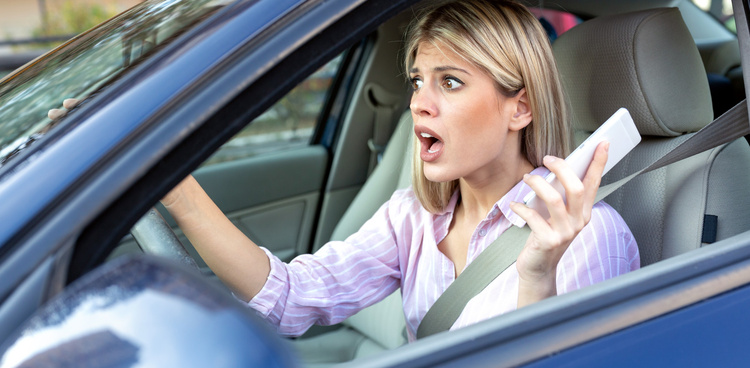
Check Out How to Manage Anger When Driving?
Anger is an intense emotion that makes people do crazy things. Some people will jump behind the wheel and start driving when angry. But, while they think this helps relieve things, they might just be creating another problem. Anger driving can lead to accidents and other dangerous situations for the driver and other road users.
Some drivers are highly strung. Psychological issues and other life circumstances often cause this. The problem with such drivers is that they see other drivers as a competition or threat. Even people who are usually calm can become stressed and angry when driving in high-pressure situations.
However, if you are operating a vehicle, you must know that you have a huge responsibility. Allowing stress to get the best part of you can build anger, turning you into a reckless driver. When this happens, it can cause injuries, disability and, in worst cases, death.
But because stress affects everyone, you cannot avoid it. However, you can find ways to deal with stress and other emotions when driving. Keep reading to learn about how you can manage anger while driving.
What Makes a Person So Angry When Driving?
Driving involves a lot of emotions. When these emotions are triggered, they can build up anger when you’re driving. If there is a threatening stimulus in your environment, it’s natural to react to it with anger. Anger can also occur when a person feels threatened even when there is no real threat in their environment.
Some things that can make someone angry when driving include stress, anxiety, shame/guilt/self-blame or when you think the other driver’s action is wrong. When these emotions arise, it’s easy to get angry, especially when you feel you are running out of time to accomplish a goal.
For instance, if you are late to work and speeding, you may feel like you aren’t driving fast enough to get to the office in time. Therefore, you can become angry at roadblocks and other drivers.
Sometimes anxiety and anger build up towards things we can’t control. For example, when there is traffic congestion, a driver can become anxious and frustrated, which can make them angry. But also note that there are other events unrelated to traffic and driving that can make a driver angry.
Why Manage Your Anger While Driving?
Failing to control your anger can lead to aggressive driving, which puts you and other road users at risk of accidents, injury and even death. But when you remain calm and collected, you’ll probably drive safely. Therefore, you and other road users will have a better chance of staying safe, alive and healthy while on the road.
How Can You Manage Your Emotions When Driving?
Managing your emotions when driving is not that hard. You just have to take several steps to remain calm and collected while on the road. These include driving when you are well-rested, being more empathetic while on the road, and practicing meditating and other stress-relieving activities.
Also, ensure that you eat a healthy diet and get enough sleep. Additionally, you can try to play soft and calming music in your car as you drive. Again, avoid taking other drivers’ actions personally.
- Give Yourself Enough Time to Reach to Get to Your Destination
When you are in a hurry to get somewhere, stress, and anxiety can build up. Therefore, you may see that other drivers are slowing you down. As such, you will likely get angry at them.
Always try to leave ahead of time to avoid rushing. You can wake up early to get to your destination on time. Also, remember that traffic is unpredictable. So give yourself more time to reach where you are going punctually.
- Practice Safe and Defensive Driving
Watch out for drivers that are going too fast or are driving recklessly. If you notice they are being unsafe, try and manage your emotions. Purpose to drive in a manner that is safe to you and other road users.
If you have to, slow down and let the other driver pass, do that. It is better to wait a minute than continue driving in an unsafe zone around the other driver. You’ll avoid altercations with other drivers if you practice safe and defensive driving.
- Maintain Your Vehicle Well
Any little thing that bothers you can trigger stress, which can turn to anger easily. Of course, you’ll have a hard time driving a poorly maintained vehicle. Therefore, this leads to a stressful drive that can make you angry. But you can avoid this by keeping your car in excellent working condition.
Additionally, always remember that you are in charge of yourself and your vehicle whenever you feel angry when driving. The good thing is that you know how to drive a car. Thus, you can make conscious decisions about what to do or not do behind the wheels. If you don’t make a vow to stay calm and collected when driving, minor mistakes will negatively affect you, building your anger.
- Gather All Your Driving Equipment
You can quickly get stressed and irritated if you don’t have the adaptive equipment that you need for driving. This is especially true for disabled drivers. It’s easy to get angry when driving in this situation.
But you can avoid this by ensuring that you have all your adaptive driving equipment with you and that they are working perfectly.
- Use Cognitive Behavioral Therapy
If you think you have trouble managing your anger, CBT can help. The therapy addresses faulty thinking and irrational emotions such as anger. It can make you think better and understand your emotions. You will likely be less angry, but even if you get angry, you’ll know how to manage it.
- Take Care of Your Health
Take care of your physical, emotional and mental health. Stress, anxiety and anger are not likely to build up when you are healthy. Therefore, ensure that you eat a healthy diet, exercise regularly, meditate, sleep well and address any issue you might be facing.
Final Thoughts
Anger can easily build up while driving. But if you let it get a better part of you, it’ll lead you to making irrational decisions, putting you and other road users at risk. You can use the above tips to control your anger and ensure that you’re always driving safely.
.png)






